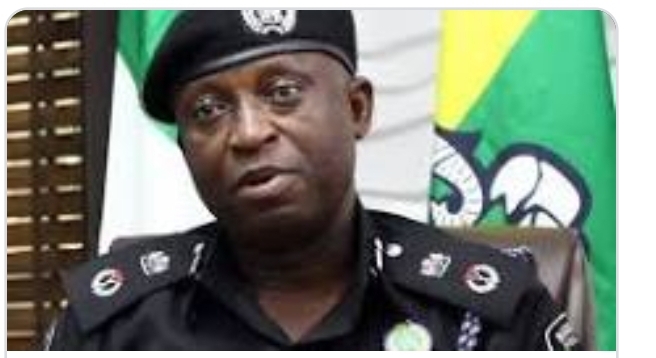Lagos State Commissioner of Police, Mr Hakeem Odumosu has debunked reports making the rounds that he unlawfully locked the gate of Brooks Estate, Magodo, Lagos.
The Police boss who has been promoted to the new rank of Assistant Inspector-General of Police explained that he acted lawfully and that the estate’ s security men were not only unruly but unreasonable.
A statement signed by CSP Adekunle Ajisebutu reads in full:
Attention of the Lagos State Police Command has been drawn to news making the rounds on social media, alleging that the Lagos State Commissioner of Police, Hakeem Odumosu, locked down the Brooks Estate, Magodo, Isheri during his visit to the Estate yesterday.
The purveyors of this news are those whose intention is to make a mountain out of a molehill, and are out to blackmail the Commissioner of Police for some personal reasons.
This rejoinder is not intended to join issues with the mischief makers peddling the news, but to unclad the truth in the interest of members of the public who might be tempted to believe the story.
CP Hakeem Odumosu who was recently promoted to the enviable rank of Assistant Inspector-General of Police due to his hard work and commitment to duty, visited the public Estate yesterday,1st January, 2022 to meet a strategic partner at a function after going round, visiting some places in the state to ensure safety of Lagosians.
The Commissioner of Police was accompanied by his armed security details and was driven in his official car bearing an official number plate and a pennant, including all the paraphernalia of office.
On reaching the Estate gate, he was properly introduced notwithstanding the visible security details in uniform including a dispatch rider in his convoy, yet he was prevented from entering the Estate by some overzealous private security guards.
All appeals to the security men to allow the CP go to see someone at a function where an urgent matter bordering on security was to be discussed, fell on deaf ears even when they had foreknowledge of his coming.
In spite of this deliberate humiliation, the senior police officer remained calm. When it became obvious that the security men were going overboard, the CP after about 30 minutes humiliation, ordered the arrest of four of the security men, leaving one. However, in order not to make the Estate porous, the Commissioner of Police immediately posted well-armed policemen at the gate to support the security man left behind.
A few minutes later, a female resident of the Estate later identified as Adebola Fatiregun who didn’t witness the incident but heard of it, stormed the gate in anger, inciting other residents against the Commissioner of Police and his aides. She was also arrested for inciting violence and conduct likely to cause a breach of peace.
All those arrested were taken to the Isheri Police Division where they made statements. They were subsequently released few minutes after, following intervention of notable individuals.
At no time did the Commissioner of Police shut or lock down the Estate. The police boss could not have done that for whatever reason, knowing that the Estate is a residential one.
Some residents of the Estate in solidarity for the arrested security men, deliberately closed the gate, thereby creating a temporary gridlock. This they did after the CP had left, perhaps to blackmail him and make him release the security men.
It should be stated here that, the 1999 Constitution of the Federal Republic of Nigeria provides for freedom of movement. The police in particular are statutorily permitted to enter any public place at any time. The Brooks Estate is a public place and the roads leading into it are highways and as such, no one has the power to prevent police officers in uniform from entering the Estate or any such public places.
The internal security arrangements of the estates and other public places nonetheless, the statutory powers of the police to have unfettered access to public places must be acknowledged and respected.
Therefore, managements or authorities of estates in the state are advised to constantly brief their private security guards in this regard. Any restriction deliberately put in the way of the police in any of the estates will not be tolerated. Offenders will be dealt with according to the law, just as the police will not condone any form of embarrassment and recklessness.
SIGNED:
CSP ADEKUNLE AJISEBUTU (ANIPR),
POLICE PUBLIC RELATIONS OFFICER,
LAGOS STATE COMMAND.

 News6 years ago
News6 years ago
 Featured6 years ago
Featured6 years ago
 Boss Picks6 years ago
Boss Picks6 years ago
 Headline6 years ago
Headline6 years ago
 Headline6 years ago
Headline6 years ago
 Headline5 years ago
Headline5 years ago
 Headline6 years ago
Headline6 years ago
 Headline6 years ago
Headline6 years ago














